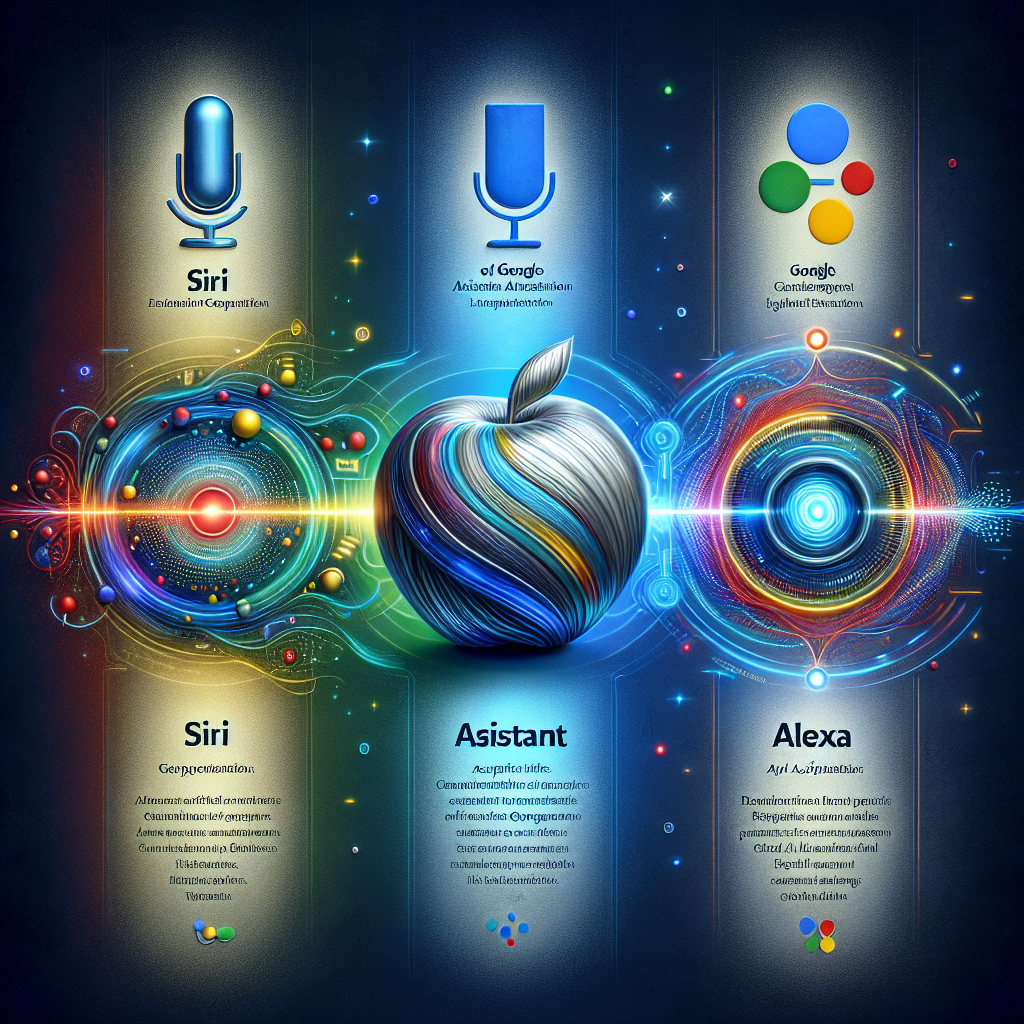Best AI Assistants in 2025: Siri vs. Google Assistant vs. Alexa
Introduction
In 2025, the landscape of AI assistants has evolved significantly, with Siri, Google Assistant, and Alexa leading the charge. These AI powerhouses have undergone substantial advancements in terms of technology, integration, and user experience. Siri, developed by Apple, continues to excel in seamless integration with iOS devices, offering a highly personalized user experience. Google Assistant, known for its deep learning capabilities and vast knowledge base, remains a favorite for Android users and those deeply embedded in Google’s ecosystem. Alexa, from Amazon, stands out for its extensive smart home capabilities and third-party integrations. Each assistant has carved out its niche, making the choice between them more about personal preference and specific needs rather than a clear-cut decision of superiority.
Best AI Assistants in 2025: Siri vs. Google Assistant vs. Alexa
In the rapidly evolving landscape of artificial intelligence, the competition among AI assistants has intensified, particularly in 2025. Siri, Google Assistant, and Alexa stand out as frontrunners, each bringing unique strengths to the table, catering to diverse user needs and preferences. This comparative analysis delves into their functionalities, integration capabilities, and user interface to determine which assistant might be best suited for different types of users.
Starting with Apple’s Siri, this AI assistant has undergone significant refinements since its inception. In 2025, Siri has enhanced its contextual understanding, making interactions more intuitive and personalized. Apple’s focus on privacy has also been a critical selling point, as Siri processes a large amount of data on-device, minimizing data sent to the cloud. This approach not only secures user data but also speeds up response times. Siri’s integration with iOS and macOS provides a seamless experience for users deeply embedded in Apple’s ecosystem, making it an excellent choice for those who prioritize privacy and are invested in Apple products.
Transitioning to Google Assistant, this AI has arguably the strongest natural language processing among its peers. Google’s vast data reservoir allows its assistant to understand and process diverse languages and dialects with remarkable accuracy. In 2025, Google Assistant has pushed the boundaries of AI-driven predictive technology, offering proactive assistance that anticipates the user’s needs before they even voice them. For instance, it might suggest departing earlier for an appointment if traffic is heavy, all without prompt. Additionally, Google Assistant’s integration with Android devices and Google’s smart home products like Google Nest makes it a versatile and indispensable tool for managing personal and home environments efficiently.
On the other hand, Amazon’s Alexa has carved out a significant niche in smart home management. Alexa’s ability to integrate with a myriad of smart devices and third-party applications makes it the go-to assistant for home automation. In 2025, Alexa supports more devices than ever and has improved its routines and automation features, allowing for more complex, customizable commands. Users can control lighting, security, entertainment systems, and much more with simple voice commands or through the Alexa app. Moreover, Amazon has continuously worked on improving Alexa’s conversational capabilities, making interactions more engaging and human-like.
Each of these AI assistants has its merits, and the choice between Siri, Google Assistant, and Alexa often boils down to the user’s specific needs and technological environment. For users deeply integrated into Apple’s ecosystem, Siri offers unmatched privacy and device synchronization. Google Assistant appeals to those who value robust AI capabilities, especially in understanding and processing natural language, making it ideal for Android users and those who rely heavily on Google’s suite of services. Meanwhile, Alexa is perfect for users focused on building or enhancing a smart home, offering extensive device compatibility and powerful automation features.
In conclusion, the landscape of AI assistants in 2025 showcases impressive advancements across Siri, Google Assistant, and Alexa. Each has evolved with distinct strengths, making the choice less about which is the best universally and more about which best meets individual needs and preferences. As AI technology continues to advance, the capabilities of these assistants will only grow, making them even more integral to our daily lives.
Conclusion
In 2025, the best AI assistants—Siri, Google Assistant, and Alexa—each excel in different areas. Siri is deeply integrated into Apple’s ecosystem, offering seamless operation across devices with enhanced privacy features. Google Assistant leads in understanding natural language and providing accurate, context-aware responses due to Google’s advanced search algorithms and data integration. Alexa dominates in smart home integration and third-party skills, making it the most versatile for home automation. The choice between them depends on the user’s specific needs: Siri for Apple users valuing privacy, Google Assistant for superior information retrieval and natural interaction, and Alexa for extensive smart home management and third-party functionality.



